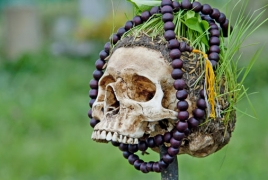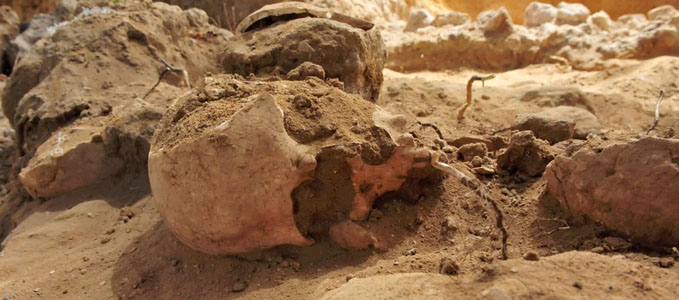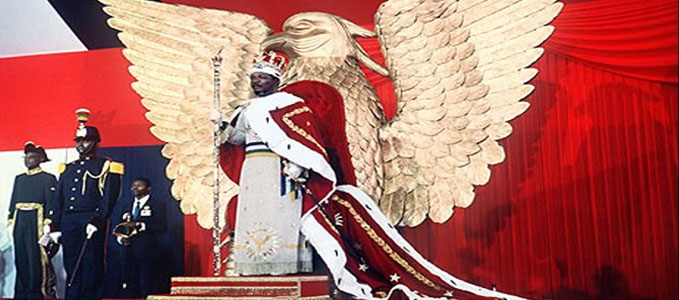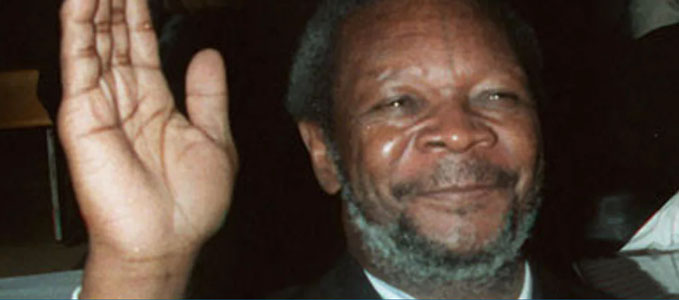
According to recent studies, cannibalism was also popular among Neanderthals. Deep in the caves of Goyet in Belgium researchers have found the grisly evidence that the Neanderthals did not just feast on horses or reindeer, but also on each other. They said human bones from a newborn, a child and four adults or teenagers who lived around 40,000 years ago show clear signs of cutting and of fractures to extract the marrow within.
The bones in Goyet date from when Neanderthals were nearing the end of their time on earth before being replaced by Homo sapiens, with whom they also interbred. Once regarded as primitive cavemen driven to extinction by smarter modern humans, studies have found that Neanderthals were actually sophisticated beings who took care of the bodies of the deceased and held burial rituals. But there is a growing body of proof that they also ate their dead.

Cannibalism derives from Caníbales, the Spanish name for the Caribs, a West Indies tribe that formerly practiced cannibalism, from Spanish canibal or caribal, "a savage". It is also called anthropophagy.
In some societies, especially tribal societies, cannibalism is a cultural norm. Consumption of a person from within the same community is called Endocannibalism; ritual cannibalism of the recently deceased can be part of the grieving processor a way of guiding the souls of the dead into the bodies of living descendants. Exocannibalism is the consumption of a person from outside the community, usually as a celebration of victory against a rival tribe. Both types of cannibalism can also be fueled by the belief that eating a person's flesh or internal organs will endow the cannibal with some of the characteristics of the deceased.
In 2012, the authorities in Papua New Guinea acquitted 29 local tribe members accused of killing and eating 7 healers. The cannibals were sure that if they eat the healers, they will assume their knowledge and skills.

Jean-Bédel Bokassa, also called Bokassa I, was an African military leader, who served as President of the Central African Republic (1966–76) and then declared himself the Emperor of the Central African Empire (1976–79).
The coronation ceremony in 1977 cost $20 million, practically bankrupting the country. His diamond-encrusted crown alone cost $5 million. Wearing costumes styled on Napoleon, he rode in a carriage flanked by soldiers dressed as 19th century French cavalrymen.
In 1979, Bokassa, who is now survived by 62 children, had hundreds of schoolchildren arrested for refusing to buy uniforms from a company owned by one of his wives. Bokassa was reported to have personally supervised the massacre of 100 of the schoolchildren by his Imperial Guard.
Besides being a brutal ruler, whose political rivals were murdered or tortured, and thieves were punished by having their ears cut off, Bokassa was variously accused of being a cannibal who ate body parts from those opponents who he did not feed to the lions and crocodiles in his personal zoo.
Rumors said Bokassa allegedly kept human flesh in his kitchen that he supposedly served to unsuspecting guests. During the coronation ceremony, the newly crowned emperor reportedly turned to a French minister in attendance and whispered, “You never noticed, but you ate human flesh.”
When Bokassa was overthrown in 1979, jubilant crowds vented their hatred on a giant statue of the tyrant who for almost 14 years ran.
But for Jean Serge Bokassa - one of the emperor's sons - history and the mob have got it wrong. He argues that his father was "a patriot" who served his country well and who has been smeared by those who wanted to topple him.

"We started to see reports and newspapers saying our father was no longer in power in the Central African Republic," Jean Serge said."There was a character assassination by media. They called him a cannibal and a criminal who massacred children."
Bokassa was sentenced in absentia to death in 1980, but he inexplicably chose to return to the Central African Republic in 1986. He was arrested and put on trial, and in 1987 he was found guilty of the murders of the schoolchildren and other crimes (although he was acquitted of charges of cannibalism). His death sentence was subsequently commuted, and he was freed in 1993. He was posthumously pardoned in 2010, in conjunction with the country’s 50th anniversary celebration.
Toward the end of his life, Bokassa returned to the intense religion of his youth, praying several times a day with a well-thumbed Bible. The former Emperor, long known for his high living, told a visitor that he renounced alcohol and sexual relations for several years.

